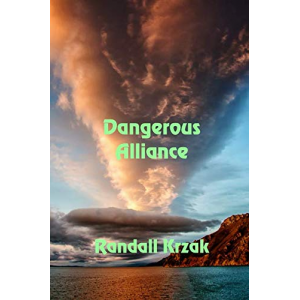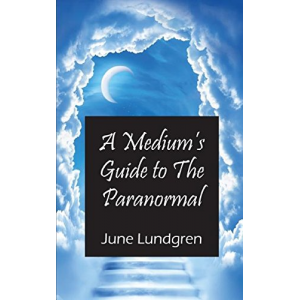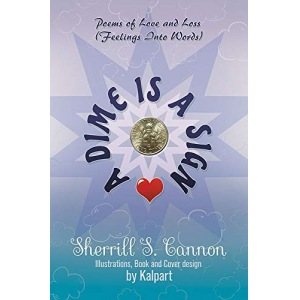Guest Blog at Avid Reader Book Reviews
🔗 http://avidbookreviews.blogspot.com/2011/05/guest-blog-by-jon-reisfeld-story-behind.html- Author
- Book
- Story behind the book
- Media Links
- Reviews

Jon Reisfeld
About
I am a professional journalist, marketing consultant and author based in Baltimore, Maryland. I have published two fiction books and have several fiction and non-fiction books in development.

Dangerous Alliance
Description
<p>United Nations’ sanctions are crippling North Korea. China has turned her back on her malevolent partner. The North Korean military machine is crumbling, unable to function. Oil reserves are minimal and the government seeks new alliances.Cargo and tourist ships are disappearing along the Somali and Kenyan coastline at an alarming rate. Speeches abound, but inaction emboldens Al-Shabab to seek their next prize: Kenya. The terror organization controls land but requires weapons.Bedlam Bravo team leader Colonel Trevor Franklin (Ret.) leads the small international team into East Africa. Tempers flare as the team is embroiled in a political quagmire. The axis must be stopped to avert an international crisis but at what cost?Proudly published by Solstice Publishing</p>
Story Behind The Book
This book had its origins in a simple, but nagging question I asked myself. When someone commits crimes against humanity on the scale of a Hitler, or a Stalin or a Mao, murdering tens of millions, can any punishment be adequate? And, if he or she escapes punishment here, what punishment might be waiting in the world to come? What, if anything, would constitute 'fitting' divine retribution? In attempting to answer that question, I wrote this book which speculates not only about the nature of Hitler's evil but of evil in general. (It also has a bit of a surprise ending.)
Media Links
Reviews
<p>"The Last Way Station is a cleverly written allegory about Hitler's final journey to hell. It is an eerie, but instructive, tale with a killer ending! Highly recommended."<br /><em><strong>Mark Woodburn, UK, author of Winston and Me.</strong></em></p> <p>Evil Stops at <em><strong>The Last Way Station</strong></em></p> <div class="a-expander-content a-expander-partial-collapse-content a-expander-content-expanded" style="color:rgb(17,17,17);font-family:Arial, sans-serif;padding-bottom:18px;">When Dante wrote "The Inferno" some 800 years ago, he populated Hell with famous historical figures, and at the very center were the worst sinners known to him: Brutus, Cassius, and Judas. Had Dante written his work today, with the benefit of 800 more years of history, he might well have found room for Adolf Hitler alongside those three. The question of Hitler's fate in the afterlife is intriguing, and Jon Reisfeld attempts an answer in "The Last Way Station," a novella with a clever idea and a brilliant reveal at the end.<br /><br /> The story takes place after Hitler's suicide, when he wakes up... well, it's not clear exactly where he is, either to Hitler himself or the readers. At first he has dreams about his youth and the rumors that went around that he might be the illegitimate grandson of a Jewish man. Then, he wakes up in a desolate place that a man who calls himself Hitler's caseworker refers to as a "rehabilitation facility." The caseworker tells Hitler that the Fuhrer will stay there until he redeems himself by working through his sins.<br /><br /> As you might guess, working through his sins proves a tall order for a man who doesn't seem capable of even acknowledging that his monstrous actions were sins in the first place. So, Reisfeld takes readers and Hitler on a trip through some of his atrocities, and the author has the novel idea of putting Hitler first in the body of a young Jewish boy on the way to a concentration camp and then in thousands of his other victims. The story of the young boy and his family is a new twist on a very familiar and intensely sad story. Some people might think that being forced to relive his victims' agony millions of times over would be enough of a suitable eternal punishment for Hitler, but Reisfeld then adds a final touch to "Way Station" that's quite a surprise but extremely fitting.<br /><br /> Reisfeld tries to do a number of things in “The Last Way Station” and is quite successful at most of them. His description of the fate of the young boy incorporates a good bit of background information about concentration camps. This material may be familiar for some readers, but the way Reisfeld relays it is quite powerful. The author also manages to create a quite credible madman in Hitler, cunning, unrepentant, megalomaniacal, and convinced he was right. Soon, his punishment becomes a test of wits and wills with his caseworker, and, up until the end, it’s not clear who will prevail.<br /><br /> “The Last Way Station” can be classified as a supernatural fantasy, if discussions of Hell and the afterlife are considered supernatural, but it raises fascinating religious and philosophical questions as well. If the afterlife exists, how do you punish pure evil on an unprecedented scale? Is redemption possible? Should the higher powers even try? Reisfeld’s description of the afterlife is somewhat more vague than others I’ve read, and, in my view, that was intentional. The author seems more interested in suggestions about the nature of the “rehabilitation facility,” with somewhat open-ended possibilities than in providing a definitive vision of the way station.<br /><br /> Reisfeld’s only misstep in this book is the opening couple of chapters, involving Hitler’s dreams or, perhaps, memories of his childhood. The tale of the possible Jewish grandfather is interesting, for those unaware of it, but doesn’t really add to the story and any implication that this was a major factor in Hitler’s adult personality is a major stretch.<br /><br /> Reisfeld accomplishes a great deal in only 70-odd pages in “The Last Way Station,” despite his initial misstep. For those who enjoy speculations about Heaven and Hell, it’s an entertaining read, but it’s also a character study of a man whose evil the author is able to bring to life, not merely through the recitation of some of his deeds, but also by giving him a memorable, albeit exceedingly warped, personality. “The Last Way Station” is a place well worth spending your time.</div> <div class="a-expander-content a-expander-partial-collapse-content a-expander-content-expanded" style="color:rgb(17,17,17);font-family:Arial, sans-serif;padding-bottom:18px;"><em><strong>-- Silver Screen Videos, Atlanta, GA</strong></em></div> <p> </p>





